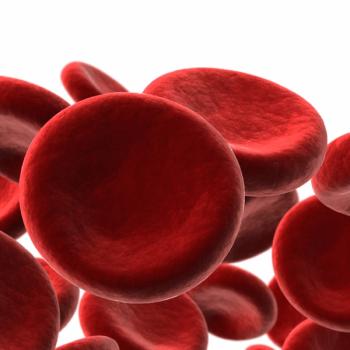
Patients now have one more option to combat chemotherapy-induced nausea and vomiting after the FDA approval of Sustol.

Patients now have one more option to combat chemotherapy-induced nausea and vomiting after the FDA approval of Sustol.

Adcetris met its primary endpoint in a phase 3 trial for patients with T-cell lymphoma.

A recent phase 3 study showed that Sutent extended disease-free survival for patients with renal cell carcinoma.

Maintenance Revlimid was shown to improve overall survival in patients with multiple myeloma.

Pracinostat was granted a breakthrough therapy designation by the FDA for use in some patients with AML.

Researchers are hoping to harness the leukemia-killing antibodies made by cured AML patients to treat others with the disease.

Two phase 3 trials led to Darzalex being granted a breakthrough therapy designation by the FDA.

Two trials testing Gilotrif's efficacy in head and neck cancer were stopped after a panel decided it was unlikely the drug would prove beneficial.

“Urothelial cancer is a common type of bladder cancer where patients experience high rates of recurrence and remains an area where new treatment approaches are needed, further underscoring the importance of this designation for Opdivo,” said Jean Viallet.

Two studies showed that Jakafi has high response rates with patients with GVHD, making the FDA give the drug a breakthrough therapy designation.

A phase 3 trial showed that Keytruda has better overall survival rates for NSCLC than chemotherapy.

The combination of Opdivo and Yervoy showed promise for certain patients with colorectal cancer in a phase 2 study.

A phase 3 study showed improved survival rates for patients with high-risk, secondary AML who took Vyxeos.

Opdivo continues to demonstrate improved overall survival in lung cancer.

A phase 3 study showed that adding Ibrance to Femara reduces disease progression for patients with ER-positive, HER2-negative advanced or metastatic breast cancer.

Previously treated patients with advanced renal cell carcinoma saw a higher overall survival rate with Cabometyx when compared to those on Afinitor, according to a phase 3 study.

The location of colon cancer may have a say in survival, according to a recent analysis.

Based on data from a phase 2 study, Tecentriq (atezolizumab), a PD-L1 inhibitor, was granted an accelerated approval for patients with locally advanced or metastatic urothelial carcinoma.

The FDA approved Opdivo (nivolumab) for classical Hodgkin lymphoma (cHL).

Algenpantucel-L failed to improve OS for patients with pancreatic cancer in a phase 3 trial.

The FDA expanded the label for Imbruvica for some patients with CLL, as the drug continues to show improved survival benefits.

Stivarga (regorafenib) proved to have better overall survival for patients with HCC in a recent phase 3 trial.

The FDA granted olaratumab a priority review for some people with advanced soft tissue sarcoma (STS).

The FDA granted Blincyto a priority review for certain pediatric patients with ALL.

The FDA approved Cabometyx (cabozantinib) for patients with advanced renal cell carcinoma (RCC) who have received prior antiangiogenic therapy.

Gilotrif (afatinib) recently gained approval for some patients with non–small cell lung cancer (NSCLC).

According to an analysis of the phase 3 GOG-0218 trial, patients who had ovarian cancer and mutations in homologous recombination (HR) genes showed improved survival rates when compared to patients without the mutations.

Opdivo might be the first PD-1 inhibitor approved for a hematologic malignancy after FDA review and approval.

FDA’s Oncologic Drugs Advisory Committee (ODAC) ultimately voted against the accelerated approval of rociletinib for patients with metastatic EGFR T790M–mutated non–small cell lung cancer (NSCLC) who have previously received an EGFR-targeted therapy.

After multiple clinical trials, atezolizumab was granted a priority review by the FDA. A decision is expected this fall.